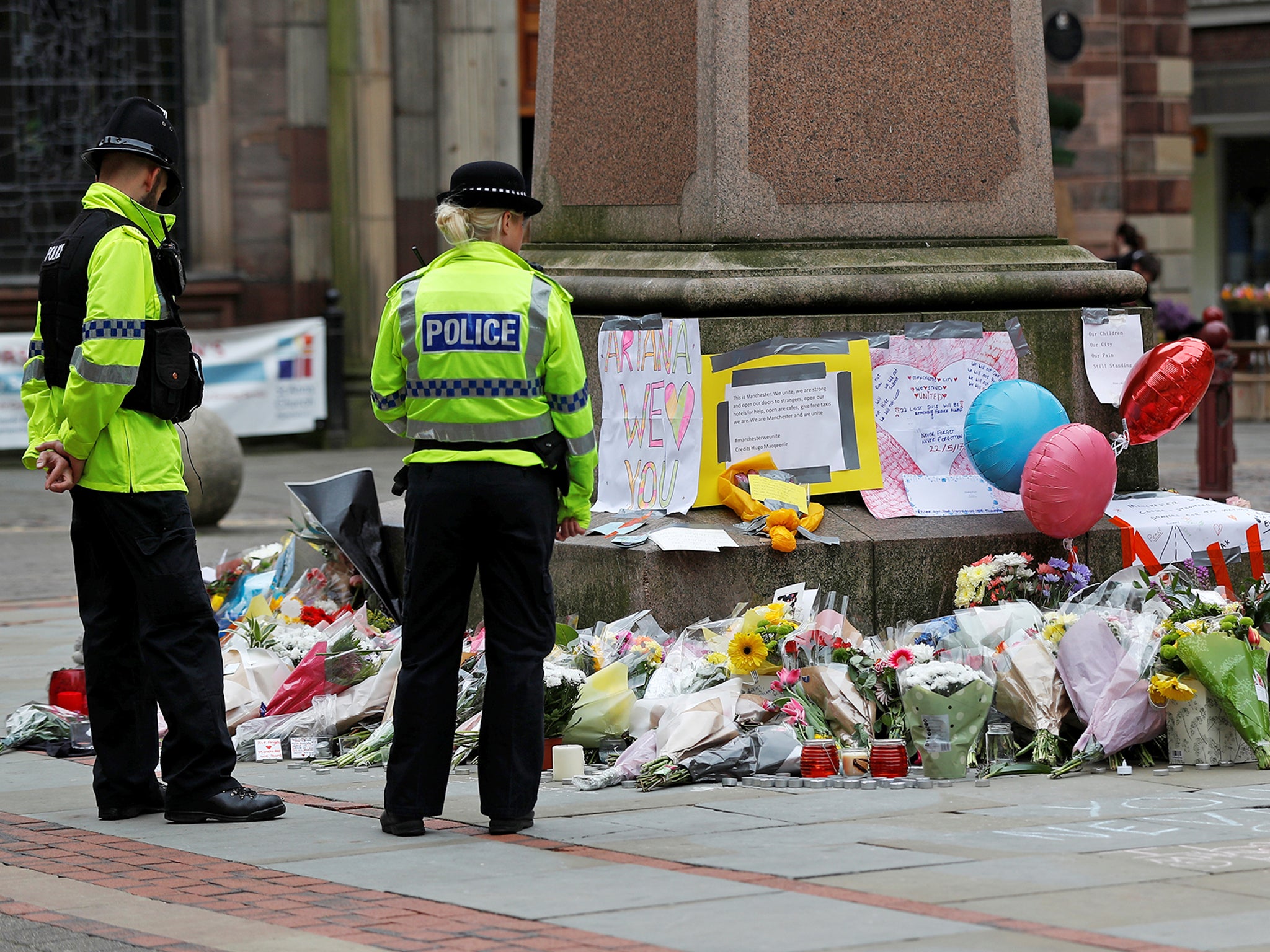Manchester attack report raises serious questions for Theresa May and security services
Someone needs to take some degree of responsibility for the dire fact that there might be British citizens alive or uninjured today had the bureaucracy worked properly or the political will been there

Your support helps us to tell the story
From reproductive rights to climate change to Big Tech, The Independent is on the ground when the story is developing. Whether it's investigating the financials of Elon Musk's pro-Trump PAC or producing our latest documentary, 'The A Word', which shines a light on the American women fighting for reproductive rights, we know how important it is to parse out the facts from the messaging.
At such a critical moment in US history, we need reporters on the ground. Your donation allows us to keep sending journalists to speak to both sides of the story.
The Independent is trusted by Americans across the entire political spectrum. And unlike many other quality news outlets, we choose not to lock Americans out of our reporting and analysis with paywalls. We believe quality journalism should be available to everyone, paid for by those who can afford it.
Your support makes all the difference.Despite the headlines, much of the parliamentary Intelligence and Security Committee report into recent domestic terror attacks does not concern individual operational failings by the security services. Those are serious enough, and worrying, but every organisation will, at some points, make a mistake or lack the resources to carry out some part of its job. It is not complacent to recognise that no law enforcement agency in history, even in the most totalitarian states, has enjoyed a 100 per cent success rate. By all accounts the security services have successfully thwarted many potential attacks through timely and decisive action.
It is true, though, that the case of Salman Abedi, the young man who murdered 22 people in the Manchester Arena bombing, with another 800 injured, raises difficult questions, and understandably. MI5, to its great credit, has admitted the errors it made in failing to monitor or act on Abedi, who was known to them. The Intelligence and Security Committee of Parliament is scrupulous in the careful judgment it makes about the mistakes by the security agencies: “While it is impossible to say whether these would have prevented the devastating attack on 22 May, we have concluded that as a result of the failings, potential opportunities to prevent it were missed.”
The very precision with which that is stated only adds to its damning effect.
What is still more concerning are the areas where it would be quite simple for the authorities to close down gaping holes in legislation and regulation that allow the terrorists to operate with undue ease. For example, it is difficult to believe that, after decades of Irish, Islamist and far-right violence, the system for regulating and reporting purchases of the ingredients used to make explosives is, in the words of the report, “hopelessly out of date in dealing with the threat posed, and this facilitated the perpetrators in acquiring the materials they required”.
The government has since acted, but, as the committee underlines, continuous vigilance is required to ensure that these basic safeguards are enforced.
Long a problem in the war on terror are the attitudes of the tech companies, who provide the sometimes closed or encrypted messaging systems the terrorists can access to plan attacks. Of course, there are legitimate concerns about privacy and civil rights, but the resistance to transparency coming from the private communications systems providers stems from their own financial motives rather than some high-minded devotion to human rights.
As the committee states, “We have seen that appeals to these companies’ sense of corporate and social responsibility have not resulted in them making the changes required – and again these loopholes were used by the perpetrators of the 2017 attacks.”
A position where terrorists can freely plan complex operations with impunity is not tolerable. If the incentive of their responsibilities as “corporate citizens” is insufficient, as it appears, then hefty financial penalties should make them think again about cooperating with the intelligence agencies, with due democratic safeguards exercised by ministers responsible to parliament.
It is said routinely after terror attacks that lessons will be learned, but the committee finds that this is not in fact being followed with action. Where the committee itself has made strong recommendations in the past – ones that might conceivably have frustrated some of the attacks last year – they have been ignored. Why the government failed to act on them is not clear – no doubt Dominic Grieve and his colleagues will wish to ask them once again – but the criticism is so severe that the home secretary during the relevant timeframe – one Theresa May – ought to take some degree of responsibility for the dire fact that there might be British citizens alive or uninjured today had the bureaucracy worked properly or the political will been there. That is the biggest failing of all. It requires explanation, at least.
Join our commenting forum
Join thought-provoking conversations, follow other Independent readers and see their replies
Comments